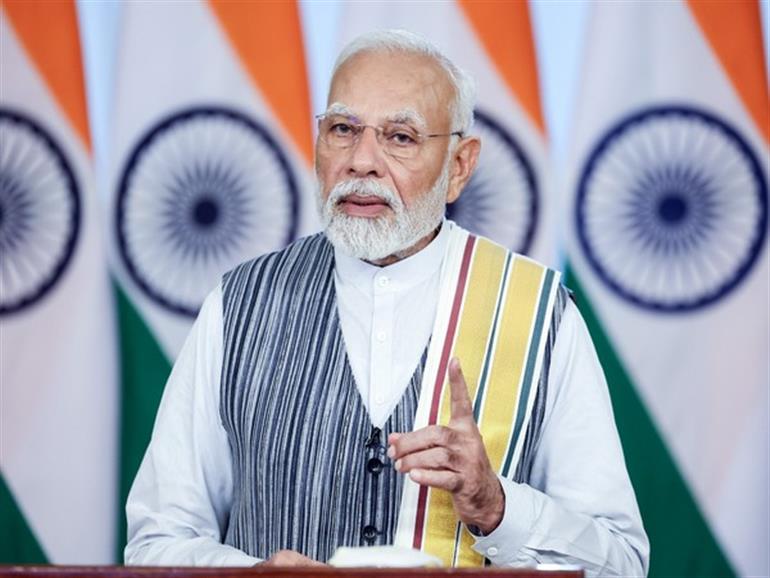Bikaner: Prime Minister Narendra Modi inaugurated and laid the foundation stones for several major development projects worth over Rs 26,000 crore in Bikaner, Rajasthan, on Thursday. During the event, he also launched 102 redeveloped railway stations across 86 districts in 18 states and Union Territories as part of the Amrit Bharat Station Scheme, at an estimated cost of around Rs 1,100 crore.
In his address to the public rally, Modi expressed pride in India’s rapid development, stating that the entire world is now impressed by the country’s progress. He highlighted projects like the Chenab Bridge, Arunachal Pradesh’s Sela Tunnel, Mumbai’s Atal Setu, and the Pamban Bridge in South India as examples of India’s rising stature in infrastructure and technology. Modi emphasized that India is modernizing its railway network with new trains such as Vande Bharat, Amrit Bharat, and Namo Bharat, showcasing the country’s technological progress.
The Prime Minister also visited the Karni Mata Temple and the newly revamped Deshnoke railway station, one of 103 stations upgraded under the scheme, which features local architectural styles like temple arches and decorative pillars. He flagged off the new Bikaner-Mumbai Express and laid the foundation for the 58 km Churu-Sadulpur rail line. Several electrification projects along key railway routes were also dedicated to enhance connectivity.
On the transportation front, the PM launched projects aimed at improving both civilian and military mobility, including the construction of underpasses on NH-58 in Pushkar and widening of NH-11 and NH-70. Seven major national highway projects worth Rs 4,850 crore were also inaugurated to boost regional economy and strengthen defense logistics.
The visit included a focus on clean energy, with the foundation of multiple solar power projects such as a 300 MW ground-mounted solar unit by NEEPCO, a 100 MW project by SJVN, and additional initiatives in Didwana and Kuchaman. Power transmission upgrades were also launched to improve grid connectivity, along with the inauguration of projects like the Power Grid Neemuch Transmission System and capacity expansion of the Fatehgarh-II Power Station. Notably, solar plants of 500 MW and 300 MW capacities are being developed to support India’s renewable energy goals under the “Make in India” initiative.
Further infrastructure improvements include the upgrading and maintenance of 12 state highways covering 757 km under the Rajasthan State Highway Development Programme, with an investment of Rs 3,240 crore. Future plans involve upgrading an additional 900 km of roadways to facilitate industrial and border area connectivity.
To bolster healthcare, the Prime Minister inaugurated four new nursing colleges in Rajsamand, Pratapgarh, Bhilwara, and Dholpur, aiming to strengthen Rajasthan’s medical workforce. He also dedicated two electrical substations in Bikaner and Udaipur to improve regional power distribution, supporting a stable energy supply.
